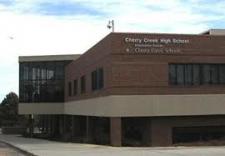Will Cardamone, Manlius Pebble Hill School
Posted on Mon, 12/02/2013 - 12:46William Cardamone grew up in New York State, the youngest of ten children. His father was a judge on the U.S. Court of Appeals and his parents pinned their hopes for a lawyer from the family on their youngest son, the only one of the ten who seemed interested in the law. Cardamone obliged -- in his own time -- graduating from Hamilton College and spending three years in the West as a wilderness guide before attending Vermont Law School.
But then he took another detour, teaching social studies for four years to 11th and 12th graders at Woodstock High School in Vermont's capital. He returned to the law for a few years, practicing employment and education law at a firm in Utica, New York. Until he visited a former advisor at his alma mater of Hamilton and spent the next eight years in their admission office, rising to Associate Dean of Admission.
While his wife, also a "recovering attorney," says Cardamone, rose in the ranks of her family's business which she would eventually lead, he found his true calling, As he worked with independent high schools in the region, recruiting for Hamilton, he said, "That's the job I want." In 2006, he joined Manlius Pebble Hill School in DeWitt, New York, as Dean of Students, eventually becoming Director of College Counseling in 2010.










